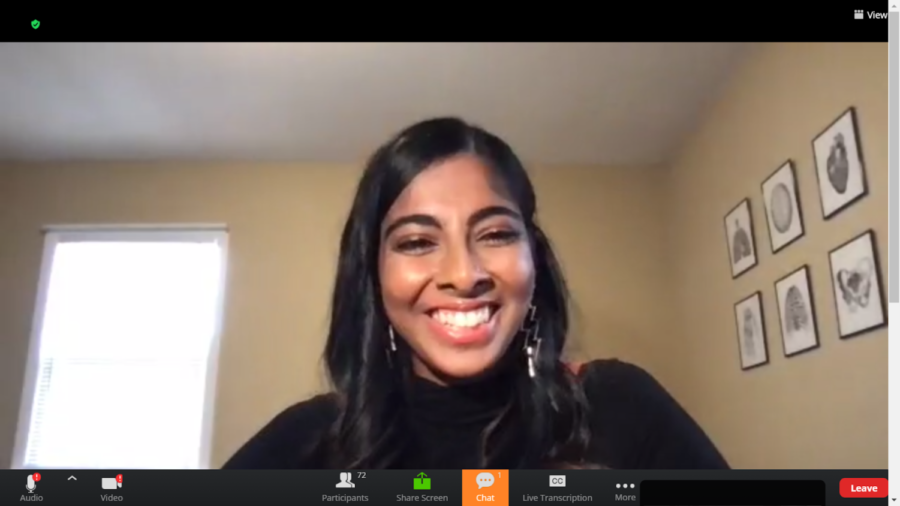The relationship between racial injustice, activism and the music industry
March 5, 2021
Activism in the music industry was discussed at the 21st annual Iowa State Conference on Race and Ethnicity (ISCORE) on Friday.
Durga Sritharan, a biology major and a George Washington Carver Scholar at Iowa State, explained how artists provide the opportunity for people to learn about social issues through music.
In her virtual presentation, titled “Activism in the Music Industry Helping to Overcome Racial Injustices,” Sritharan analyzed multiple eras and genres of music to explore its impact on activism.
She said the goal of her presentation was to help “understand the importance of activism in the music industry, appreciate its impact and how this form of activism can be improved.”
Sritharan chose to research music because she wanted to explore modern-day activism in the music industry.
“I wanted to leave a lasting impact on a unique and up-and-coming form of activism,” Sritharan said.
As a multi-instrumentalist and singer, Sritharan’s topic was also inspired by her passion for music. She said she learned how to analyze the message of a song and its lyrics through her involvement in choir in high school.
“To perform the song well, you also have to know what the message is,” she said.
Sritharan discussed activism in multiple genres including blues, jazz, rhythm and blues and rap.
According to Sritharan, blues music inspired work songs and spirituals that helped empower slaves to adapt and overcome their hardships.
“Blues music acts as a response of African abductees to American enslavement,” Sritharan said.
Sritharan explained that jazz music was born out of the blues genre. Nina Simone and John Coltrane were important jazz artists who used their music to respond to the 1963 bombing of a Birmingham church by a white supremacist.
Simone’s song “I Wish I Knew How It Would Feel to be Free” addressed the struggle of African Americans to gain freedom. Coltrane’s music “called the people to reflect on lives lost through a solely instrumental approach,” according to Sritharan.
Sritharan also discussed the impact of more recent artists, including Beyonce, Kendrick Lamar and H.E.R. These artists have used their platforms to address racial injustice through music, tackling issues like police brutality and the Black Lives Matter movement.
Sritharan discussed three songs by these artists: “Alright,” by Kendrick Lamar, “Freedom,” by Beyonce and “I Can’t Breathe,” by H.E.R. Sritharan analyzed the lyrics of each of these songs and their message.
H.E.R.’s song “I Can’t Breathe” responded to recent police brutality against unarmed African Americans, referencing the last words of at least 70 victims of police brutality, according to Sritharan.
“[H.E.R.] does not ask the audience how we got here, but tells them instead,” Sritharan said. “She cites America’s history of oppression as the root of today’s violence.”
Sritharan also discussed how platforms like Spotify, Apple Music and social media help spark conversations to educate and encourage audiences to fight for equality.
”Music provides a method for artists to speak their mind and spread awareness on issues they feel strongly about,” Sritharan said.
Sritharan concluded the presentation with a discussion of the future of activism in the music industry, including how more white artists should strive to address social issues in their music.
“There has been a continuous trend of artists of color releasing music to address social issues, especially those regarding racial injustices,” she said. “However, if more white artists contribute to this approach of spreading awareness, a wider range of people will become more educated on these subjects.”
Sritharan highlighted the importance and future of activism in the music industry.
“Music provides a platform… to spark conversations that tend to be ignored and build a better foundation and future for those to come,” she said.

















